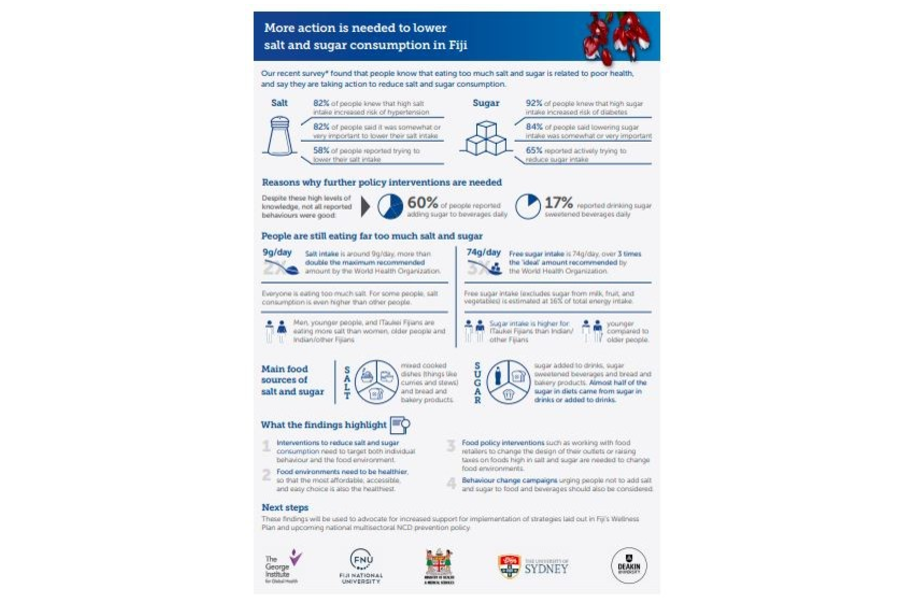More action is needed to lower salt and sugar consumption in Fiji: infographics for policy makers
Research is underway in Fiji to inform policy makers about the need to implement new food policy and strengthen existing policies aimed at reducing diet-related illness, linked to excess salt, fat and sugar access and consumption.
The burden of non-communicable diseases (NCDs) is exceptionally high in the Pacific Island region, resulting in high rates of premature death. Increasing rates of NCDs are linked with the transition from traditional diets, based on locally-grown foods, to diets high in salt, fat and sugar particularly from processed packaged foods.
The George Institute is working with the Ministry of Health Fiji, Fiji National University, Deakin University and the University of Sydney, on a five year project to support the creation of healthier food environments in Fiji and the Pacific Region more broadly.
Some of the research results to date were captured in infographics designed for policy makers. The infographics highlight key results, and provide recommendations using the research, for the reduction of diet-related illness.
There is a need to ensure food policies are implemented successfully in order to improve the food environment and decrease the NCD burden in Pacific Island countries. By identifying factors to achieve effective food policy implementation this research will help address the burden of diet-related NCDs in the Pacific.
Stay connected and updated
Subscribe to our mailing list for the latest news, events, and updates in health research.


